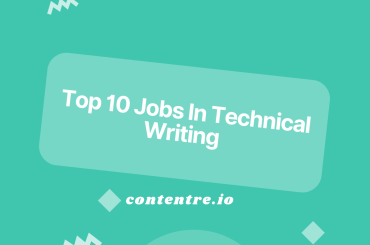Meet John, he went from an abysmal pay of $0.0025 per word to earning $350 per article and having fun along his technical writing journey.
John moved from being a general freelance writer to a technical writer and fell in love with developing dAPPs with smart contracts and Web 3 and blockchain-related content
Warm your hearts and brace yourself for future and unseen events in your freelance technical writing career, as we take you through this journey with John Fawole. You’d get to learn the special tactics he employed to turn his worst experience into a new and blissful career path.
Shall we?
Please introduce yourself
My name is John Fawole, I’m a writer (I like to be identified first as a writer before a technical writer because that was how I started my journey), and a Web 3 technical writer.
How did you start your journey into the technical writing space?
I didn’t start my career as a technical writer, I started as a writer on digital marketing, the economy, and finance too sometimes. Back then we had this writer’s community called Week Of Saturdays. That was the writing community that groomed me. For example, when I started I didn’t know anything about Google Docs, but that community helped around 2019.
Furthermore, the writing community made me know more about writing and groomed my writing skills. We often have writing streaks where we write every blessed day for months. From there, I started moving from client to client, and I guess that was when the journey also got interesting and exciting. Basically, that was how I started my writing career.
However, how I got into technical writing is a bit different because there are a lot of in-betweens but I will try to go straight to the point.
There was this client I was working for an NFT platform as a writer and I was told to write about an NFT marketplace. So when I was drawing out my outline, I included the tech stack a usual NFT marketplace will have.
Unfortunately, when I sent it to my editor for approval, I was rejected with a note saying that the article is becoming too technical. But for me, I really wanted to write about the tech stack and write more on the technical writing part of the article as opposed to only writing about the product.
To give it more context, most articles cut out developers and only focus on writing for a general audience, whereas if you want to market to developers, you need to consider them when creating the article.
However, in my article outline, I wanted to focus article on developers and write an article that an engineer will love to read about the NFT marketplace.
That was when I got to discover that I prefer to write articles for developers and engineers rather than general writing.
In addition, it was at that point, I started grooming my development skills and writing more developer-focused content. Also, this year 2022, I started learning with Solidity as a way to improve my Web3 technical writing and focus more on the Web 3 industry.
So far, I have written for many blockchains and Web 3-related companies such as Alchemy, QuickNodes, and a whole lot of other Web 3 companies.
In summary, that was how I started technical writing and I’m really loving it because technical writing is giving this kind of fulfillment as a writer and an engineer. It improves my ability to find solutions when I’m stuck and I’m loving it.
What’s your best experience as a technical writer?
My best experience as a technical writer so far is my work at Alchemy. their work culture is great and they communicate well with their team members and even external freelance technical writers. They also include educational sessions for writers to help them have a full context of what they are writing about.
Just to add, one of the best protocols I will recommend to anyone is the Alchemy protocol because their work ethic is great and so is their support.
How much did you get paid when starting out in technical writing?
When I was starting as a freelance writer around 2019, I started with N1/word (0.0025USD/word) from there I grew, developed my brand, and moved into technical writing where I currently earn between $100 to $350 and even more.
It is worth noting that when I was starting, I wasn’t all focused on the monetary aspect. I wanted to learn, grow, build my brand and become a better writer. I was able to achieve it with my commitment and passion even when I was earning very little.
Also, I was very excited when my article was published and real people were reading it and interacting with my content that alone was giving more satisfaction.
What about your worst experience?
My worst experience so that is when I was working on an article recently, the article was a new concept and a new product of chainlink. So I have already written the conceptual part of the article and when I wanted to write the smart contract part of the article, I was facing a whole lot of bugs and issues. I reached out to the editors and they recommended a process for me. Unfortunately, when I tried that process it wasn’t working also.
This particular article lingered for a very long time and made me disturb a lot of my friends to resolve the smart contract bugs before I could submit the article for final review.
So far, that particular article has been my worst experience as a technical writer, though we have resolved it and the article was finally published but it was a real thorn in my flesh.
In summary, I don’t count it as the worst experience anymore because now that the article is finally published I learned a lot from it because there were not many resources available online for that technology since it was now. But now that the article is published plus the new one I’m working on, I believe it’s going to be very helpful to other engineers who might be facing the same challenge that I have already faced.
If you could turn back the hands of time, what would you do differently?
The first thing I will have done differently is that I have been more serious with my development aspect. Here’s a back story, I was actually learning HTML when I left secondary school (high school) but immediately after I got to the university, I just forgot everything about it.
So I will have to take my engineering and development very seriously because it helps in technical writing very much as you can’t communicate with engineers if you’re not one. I have read an article where the technical writer was so skilled at both the writing and the engineering part that he will point out the errors you will face in the article even before you got there.
Therefore, a good knowledge of engineering will help my technical writing tremendously and that is what I will change if I can turn back the hands of time.
Additionally, I will have been serious with my social media, community, and building my personal brand as a writer. By doing so, I will have met more engineers, and founders because the industry is about connection and networking which can really help me with getting roles or gigs as a technical writer.
What would you describe as your writing weakness?
One of my technical writing weaknesses is documentation writing. Sometimes, It is shocking when I tell people that documentation writing is my weakness because many people expect me to know how to write documentation as a technical writer.
At the moment, I write more How-To guides, and tutorials and I’m seriously learning how to create and manage documentation.
I haven’t really had any gig that requires me to create documentation from scratch but I feel what I will do is create a simple project for myself and also create the documentation for it. Also, another approach I will consider taking will be contributing to open source.
What do you want to say to technical writers out there?
I will start by advising them to take their engineering that’s the technical aspect of technical writing very seriously. Also, engineers coming into technical writing should take their writing very seriously and improve their sentence or grammatical constructions.
Here is a tweet from Contentre’s Twitter account that summarizes everything:
And lastly, don’t reject clients because they are not technical and that’s where most technical writers get it wrong because it will help you improve your writing drastically.
How do you present your portfolio to clients?
I have different client acquisition methods. Firstly, I use Upwork, my social media, and also Twitter and Linkedin and they are my best client acquisition strategies.
My method of sharing my previous samples with clients differs, most times I send 2-3 links to the previous articles that I have written, sometimes, I send them to my Hashnode account and lastly, I share my Contentre portfolio link.
Contentre is very helpful at separating your samples into multiple portfolios so that you only send one link containing only the specific samples you want your client to see.
Contentre helps technical writers stay organized and gain more clients. Grow your technical writing career in one place.
Now that you’re here, let me briefly recap the most important features Contentre can offer you:
- Organize your content in categories, topics, and tags
- Create and manage multiple clients
- Create and manage multiple personalized portfolios
- Get statistical analytics of your content revenue, top categories, and tags.







